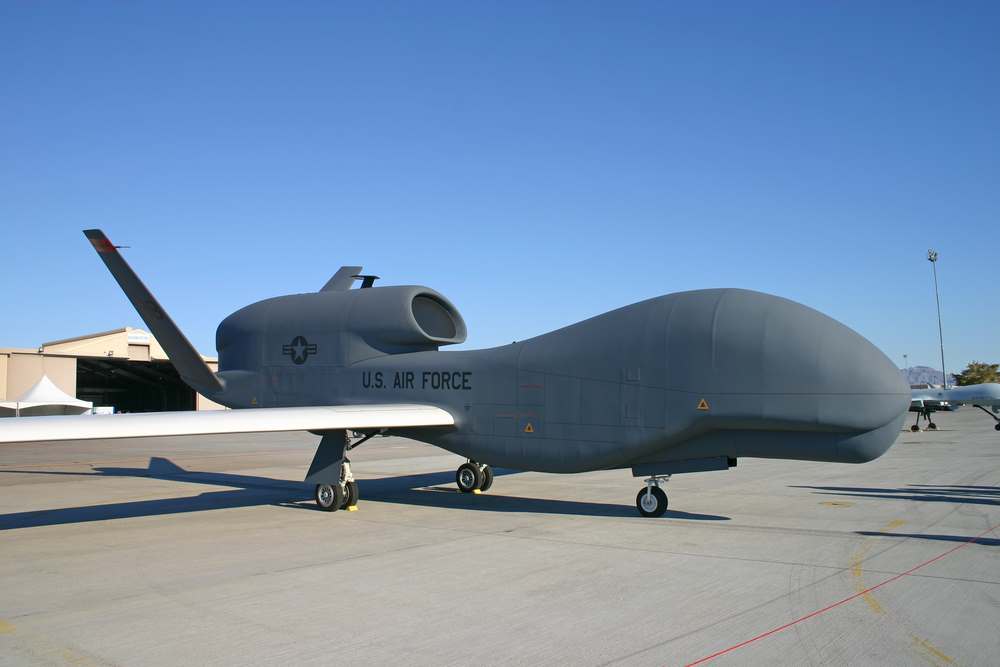President Donald Trump called Iran’s shootdown of a U.S. drone over the Strait of Hormuz a “very bad mistake,” saying it will further complicate an already tense showdown between Washington and Tehran.
By: Jeff Seldin
“This is a new fly in the ointment,” Trump told reporters Thursday while meeting with Canadian Prime Minister Justin Trudeau at the White House.
“This drone was in international waters, clearly. We have it all documented scientifically not just words,” Trump said. “They made a very bad mistake.”
Earlier, the president wrote on Twitter, “Iran made a very big mistake!”
But during the meeting with his Canadian counterpart, Trump seemed to try to soften his rhetoric.
“It could have been somebody that was loose and stupid,” he said of whoever ordered the attack.
He also said, “It would have made a big, big difference” had Iran shot down a manned U.S. aircraft.
Earlier Thursday, Iran’s Revolutionary Guard claimed to have shot down the U.S. RQ-4 Global Hawk drone over Iranian airspace.
“Borders are our red line,” Revolutionary Guard commander Gen. Hossein Salami told a crowd in the western city of Sanandaj, in a televised address. “`Any enemy that violates the borders will be annihilated.”
But U.S. Air Forces Central Command, which oversees U.S. military activity in the region, said the Iranian claim was “categorically false.”
“This was an unprovoked attack on a U.S. surveillance asset that had not violated Iranian airspace at any time during its mission,” Lt. Gen Joseph Guastella said in a statement he read to reporters at the Pentagon.
Guastella said the drone was flying a surveillance mission over international airspace and was 34 kilometers from the Iranian coastline when it was shot down.
“This attack is an attempt to disrupt our ability to monitor the area following recent threats to international shipping and free flow of commerce,” Guastella said, adding it could have put civilian aircraft flying in established air corridors between the United Arab Emirates and Oman in danger.
The RQ-4 drone costs more than $222 million and can surveil about 100,000 kilometers squared a day, an area about the size of South Korea or Iceland.
The U.S. said it had dispatched naval ships to the strait in an attempt to recover pieces of the drone from a debris field.
Earlier Thursday, Iranian Foreign Minister Mohammad Javad Zarif accused the U.S. of being the aggressor.
“The US wages #EconomicTerrorism on Iran, has conducted covert action against us & now encroaches on our territory,” Zarif wrote on Twitter. “We don’t seek war, but will zealously defend our skies, land & waters.”
Zarid also promised to take Iran’s evidence of Washington’s alleged aggression to the United Nations.
Concern about a potential confrontation between the U.S. and Iran has been growing since U.S. officials last week accused Iran of being responsible for mine attacks on two oil tankers in the Strait of Hormuz, allegations Tehran denies.
In addition, U.S. officials have said intelligence over the past month and a half has pointed to numerous “threat streams” that “link back to the Iranian regime.”
On Wednesday, U.S. Special Representative for Iran Brian Hook told a panel of lawmakers that the decision to authorize another 1,000 troops to bolster defenses at U.S. positions in Iraq and Syria — including a Patriot missile battery and additional manned and unmanned reconnaissance aircraft — had been effective.
“We think that has helped to decrease the risk of miscalculation,” he said.
But following the downing of the U.S. drone, South Carolina Republican Senator Lindsey Graham said the risks of a possible confrontation are rising.
“He believes that we’re getting into a bad space, that his options are running out,” Graham told reporters after speaking with President Trump.
House Speaker Nancy Pelosi said Thursday the United States has “no appetite” for war with Iran.
“It’s a dangerous situation, high tension wires are up in the region. We have to be strong and strategic about how we protect our interests. We also cannot be reckless in what we do,” the top Democratic lawmaker told reporters before heading to an intelligence briefing.
House Republican Leader Kevin McCarthy was less diplomatic.
“Iran knows it’s unacceptable,” he told reporters, adding Trump could strike back without first consulting Congress.
“He has the authority currently — he has two AUMFs (Authorization for the Use of Military Force) sitting out there right now,” McCarthy said.
Russian President Vladimir Putin warned the U.S. against retaliating for the incident, saying U.S. use of force against Iran “would be a disaster for the region.”
The U.S. military said Iran first tried to shoot down a U.S. drone last week.
Relations have deteriorated since Trump withdrew last year from the international agreement that limited Iran’s nuclear program in exchange for sanctions relief.
Since then, the U.S. has levied a variety of sanctions against Iran as part of what the a “maximum pressure” campaign against Iran, aimed at bringing Tehran back to negotiations in order to secure what White House officials have described as a more comprehensive nuclear deal that also addresses Iran’s missile program and its support for terrorist groups.
U.S. officials believe the Iranian government is feeling the pressure from the renewed sanctions. But in response, Iran announced increased production of low-enriched uranium as it seeks help from European nations to circumvent the U.S. measures. (VOA)




